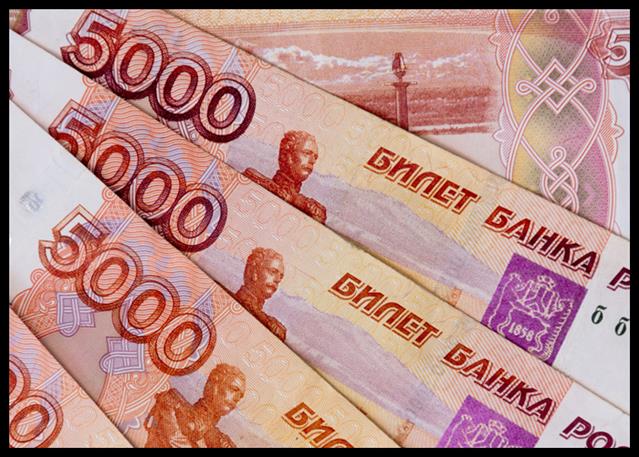Asian Markets Trade Mixed After Fed Decision
Asian stock markets are trading mixed on Thursday, following the mixed cues from Wall Street overnight, with the markets reacting to the US Fed’s decision to hold interest rates steady, while also ruling out a rate hike in the near future. Asian Markets closed mostly lower on Wednesday.
The Fed announced its widely expected decision to leave interest rates unchanged, citing a lack of further progress toward its 2 percent inflation objective in recent months.
Members of the Fed also reiterated they need greater confidence inflation is moving sustainably toward 2 percent before they consider cutting interest rates.
Fed Chair Powell said during his post-meeting press conference that the central bank’s next policy rate is unlikely to be a hike
The Fed’s next monetary policy meeting is scheduled for June 11-12, with the central bank likely to leave rates unchanged once again.
The Australian market is notably higher on Thursday, recouping some of the sharp losses in the previous session, following the mixed cues from Wall Street overnight. The benchmark S&P/ASX 200 is moving above the 7,600 level, with gains in gold miners and financial stocks partially offset by weakness in financial and technology stocks.
The benchmark S&P/ASX 200 Index is gaining 37.80 points or 0.50 percent to 7,607.70, after touching a high of 7,616.00 earlier. The broader All Ordinaries Index is up 35.20 points or 0.45 percent to 7,867.10. Australian stocks ended sharply lower on Wednesday.
Among major miners, Rio Tinto and Fortescue Metals are edging down 0.2 to 0.4 percent each, while BHP Group is edging up 0.1 percent and Mineral Resources is adding almost 1 percent.
Oil stocks are mostly lower. Woodside Energy is losing more than 1 percent, while Origin Energy, Beach energy and Santos are declining almost 1 percent each.
In the tech space, Afterpay owner Block is plunging more than 7 percent, Xero is edging down 0.3 percent and Zip is losing more than 1 percent, while Appen is gaining almost 1 percent. WiseTech Global is flat.
Among the big four banks, Commonwealth Bank, ANZ Banking and National Australia Bank are gaining almost 1 percent each, while Westpac is adding 1.5 percent.
Among gold miners, Evolution Mining is gaining 1.5 percent, Resolute Mining is advancing more than 4 percent, Gold Road Resources is adding almost 3 percent, Newmont is up almost 1 percent and Northern Star Resources is rising almost 2 percent.
In other news, shares in Bapcor are plunging 31 percent after the Autobarn-owner downgraded its profit guidance and blamed consumers.
Shares in Woolworths slipped 4 percent after the supermarket group’s results missed analysts’ forecasts.
In the currency market, the Aussie dollar is trading at $0.654 on Thursday.
Recouping some of the losses in the previous session, the Japanese market is slightly higher on Thursday after opening in the red, following the mixed cues from Wall Street overnight. The Nikkei 225 is moving up to stay a tad below the 38,300 level, as traders reacted to a mixed set of economic data.
The benchmark Nikkei 225 Index closed the morning session at 38,299.71, up 25.66 points or 0.07 percent, after hitting a low of 37,958.19 earlier. Japanese shares ended notably lower on Wednesday.
Market heavyweight SoftBank Group is losing almost 1 percent and Uniqlo operator Fast Retailing is flat. Among automakers, Toyota is edging down 0.1 percent and Honda is also edging down 0.3 percent.
In the tech space, Advantest is losing almost 1 percent, while Tokyo Electron and Screen Holdings are edging up 0.4 to 0.2 percent each.
In the banking sector, Sumitomo Mitsui Financial is losing almost 2 percent, while Mizuho Financial and Mitsubishi UFJ Financial are declining almost 1 percent each.
Among the major exporters, Canon is losing more than 1 percent, while Mitsubishi Electric and Sony are declining almost 1 percent each. Panasonic is edging up 0.3 percent.
Among other major gainers, Kansai Electric Power is gaining almost 5 percent and Sumitomo is adding almost 4 percent, while Mitsubishi and Daiichi Sankyo are up almost 3 percent each.
Conversely, Sumitomo Pharma is plunging more than 7 percent, while Mazda Motor and TDK are losing more than 3 percent each. Resona Holdings and Shiseido are declining almost 3 percent each.
In economic news, members of the Bank of Japan’s Monetary Policy Board said that the bank’s inflation target of 2 percent was in sight, minutes from the central bank’s March 18-19 meeting revealed on Thursday. At the meeting, the BoJ raised its interest rates for the first time in nearly two decades and became the world’s last central bank to end negative rates amid signs that inflation is strengthening. The bank raised the overnight interest rate to around 0 to 0.1 percent from minus 0.1 percent.
Meanwhile, the Bank of Japan said the monetary base in Japan was up 2.1 percent on year in April, coming in at 689.896 trillion yen. That’s up from 1.6 percent in March. The adjusted monetary base spiked 11.4 percent on year.
In the currency market, the U.S. dollar is trading in the higher 155 yen-range on Thursday.
Elsewhere in Asia, Hong Kong is up 1.3 percent, while, Malaysia and Singapore are up 0.1 and 0.2 percent, respectively. South Korea, Taiwan and Indonesia are lower by between 0.1 and 0.8 percent each. New Zealand is relatively flat. China is closed for labor day holiday.
On Wall Street, stocks saw substantial volatility following the Federal Reserve’s monetary policy announcement Wednesday afternoon after turning in a lackluster performance for much of the session. The major averages initially surged in reaction to the Fed announcement but pulled back going into the close.
The major averages eventually finished the day mixed. While the Dow rose 87.37 points or 0.2 percent to 37,903.29, the Nasdaq fell 52.34 points or 0.3 percent to 15,605.48 and the S&P 500 dipped 17.30 points or 0.3 percent to 5,018.39.
While most of the major European markets were also closed on the day, U.K. stocks moved modestly lower. The U.K.’s FTSE 100 Index ended the day down by 0.3 percent.
Crude oil prices fell to a seven-week low on Wednesday after data showed an unexpected sharp jump in U.S. crude inventories last week. West Texas Intermediate Crude oil futures for June ended lower by $2.93 at $79.00 a barrel, the lowest settlement since March 12.
| Broker | Website | |
|---|---|---|
| 🥇 |  | Visit Broker >> |
| 🥈 |  | Visit Broker >> |
| 🥉 |  | Visit Broker >> |
| 4 |  | Visit Broker >> |
| 5 |  | Visit Broker >> |
| 6 |  | Visit Broker >> |
| 7 |  | Visit Broker >> |











